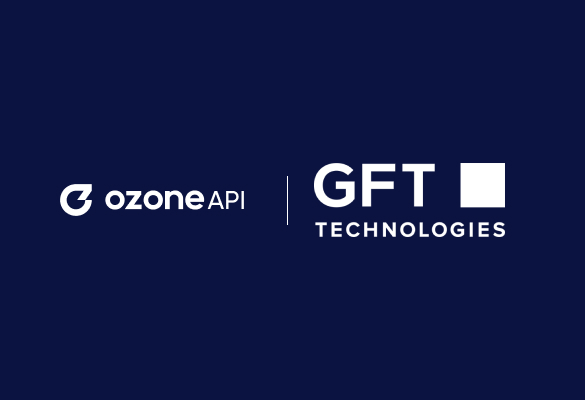Globally there are an estimated 1.7bn adults in the world that are unbanked. That is almost one in every three people in the world!
Having grown up in a privileged environment (I didn’t always accept that as a kid, but I eventually had to acknowledge that I did) that is a staggering number to try and comprehend.
It is a genuine global issue, alongside issues like climate change and health and therefore anything that can help tackle it at a foundational level is hugely significant.
So could open finance be that panacea??
One of the reasons that so many adults are unbanked or underbanked is that the traditional banking model just doesn’t serve all sectors of society well. The economic model doesn’t work when the product P&L is weighed down by big legacy systems, branch networks and many other costs carried by the big banks. Secondly, borrowing can be really difficult when the main way to be assessed for a loan is other loans you have (your credit history). Finally the banks often just aren’t good at understanding and targeting all segments.
Bankers are often incentivised to manage the P&L first and foremost and that is usually best served by not losing existing customers. Chasing a new segment just never reaches the top of the priority list, particularly if it’s perceived to be difficult.
There are of course a range of other complex challenges such as digital mobility, education and other issues at hand, however it is clear that the current industry structure does compound the challenge.
So, could open finance and more open access to data allow these underserved segments to be targeted more effectively? Straight logic says yes, as it can allow new entrants to enter the market and target specific segments in a much more tailored way. With access to the financial ecosystem via open APIs and new routes to move money, access financial information and make borrowing decisions, the barriers and costs of entry come down.
So the theory is sound, but how is this playing out in the UK (where we’re now almost 3 years into the journey) and what does the opportunity look like in Brazil, where open finance is imminent?? I talked to a number of experts to get their views and perspectives.
Financial Inclusion initiatives in the UK
The UK has now been on the open banking journey for almost 3 years and, whilst it is still early days, the open banking and open finance ecosystem is really starting to become meaningful.
The recent Open Up 2020 Challenge, a £1.5m challenge prize to unlock the power of open banking for UK consumers, has highlighted some of the most innovative financial products on the market and many were specifically focused on segments that are traditionally underserved.
So, for example, there are services that help consumers to:
- prove affordability, demonstrating to lenders that they can meet repayments even if they have a poor or thin credit score
- let salaried workers draw their wages as they earn in order to smooth their personal cash flow
- get debt advice and tools to alleviate financial stress
- even early-stage solutions that notify a trusted friend or carer when a vulnerable person displays unusual spending activity.
Miles Cheetham, former Head of Propositions at the Open Banking Implementation Entity said:
“More than anything, the Challenge shows the power of ideas and creativity to solve everyday problems in people’s lives. These are very human-centric solutions driven by need and with very clear benefits – and really demonstrate the opportunity to address financial inclusion.”
You can find out more here https://openup2020.org/explore-the-open-banking-apps
One of the fintechs at the heart of the financial inclusion challenge in the UK is Account Score. We talked to Andrea Varga (Head of SME Lending) about the most impactful examples she has seen that tackle the real issue of financial inclusion:
“Whilst having connectivity to the banking APIs and raw transactional data is great, it does not drive financial inclusion on its own. In order to help our clients provide better product offerings and improve their customers’ financial well-being, it is crucial to provide easy to understand, accurate and reliable data analytics to underpin their decisioning.
At AccountScore we believe that every organisation should have access to quality information, regardless of size. Therefore, one of our key areas of focus is driving financial inclusion to support smaller lenders and credit unions, to allow them access to the same data analytics as the big banks. Credit unions are helping smaller communities benefit from financial products whilst also helping those who cannot get access to ordinary products.
Open banking enables Credit Unions to streamline their on-boarding processes, increase their acceptance rates and make lending available safely to pockets of customers who may previously have been declined based on just their credit history. At the same time it helps credit unions move away from manual resource consuming processes to a digital first platform.”
Sam Busuttil – Operational Manager at East Sussex Credit Union said:
“We recently approved a loan of £24k for the purpose of debt consolidation which we probably wouldn’t have had confidence in doing previously. Our increased confidence in approving larger loans has come from the quality of affordability information that AccountScore gives us and how this impacts disposable income. The categorised expenditure on Account Score for ‘Financial Services’ enables us to quickly marry up this information to the credit report and assess if all creditors are disclosed on the credit report and if there are any ‘hidden’ creditors.”
So the UK is showing some real evidence that open finance is having an impact. With open finance starting to emerge in markets with a much bigger challenge, what could this mean on a larger scale.
Tackling Financial Inclusion in Brazil
In Brazil there are an estimated 45 million unbanked adults (add source) and in 2020 the Central Bank has fired that starting pistol on open banking regulation. Creating a digital, secure and open API based foundation to start tackling the issue.
In advance of the regulation TecBan recently held a huge open finance hackathon to kickstart the innovation. With over 1,000 applicants and over 40 teams competing this really was a festival of creativity.
Tiago Aguiar, Head of New Platforms at Tecban, highlighted how the hackathon really focused on financial inclusion as a theme:
“We wanted to show what open banking could bring to the people!”
“Fintechs and startups are sometimes closer to the needs of the people who have problems, specially cause in some cases the entrepreneurs are the ones with that problem, living that reality.””
“The team that won came up with a solution to help people who do small, day to day jobs (gig economy). The app would help people see their cash flow, build a credit history and then get access to micro loans to allow them to provide the service. For example, to buy the paint before doing a job that day.”
The hackathon was a huge success and really shone a light on the potential of open finance to help tackle financial inclusion. Open banking and open finance will be rolled out in Brazil with the first phase starting this year and the implementation due to complete in a year’s time.
It will be exciting to see what propositions emerge to bring financial services to more of the population.
So will it be the panacea?
I am a very optimistic person by nature, so I look at this as an incredible opportunity for the industry. Both existing players and new entrants and I am hopeful that the foundation stone of great, standards based APIs will lead to a significant and lasting improvement in financial inclusion around the world.
That said, there will remain other challenges. The industry needs to grab the opportunity rather than conspire to miss it through backward looking or protectionist attitudes. It is also about more than just the financial services industry, it’s about access to broadband and digital infrastructure, it’s about the economic recovery post covid, it’s about education. It’s about many things.
But will it be the panacea? I hope so. Could it be? Absolutely!








